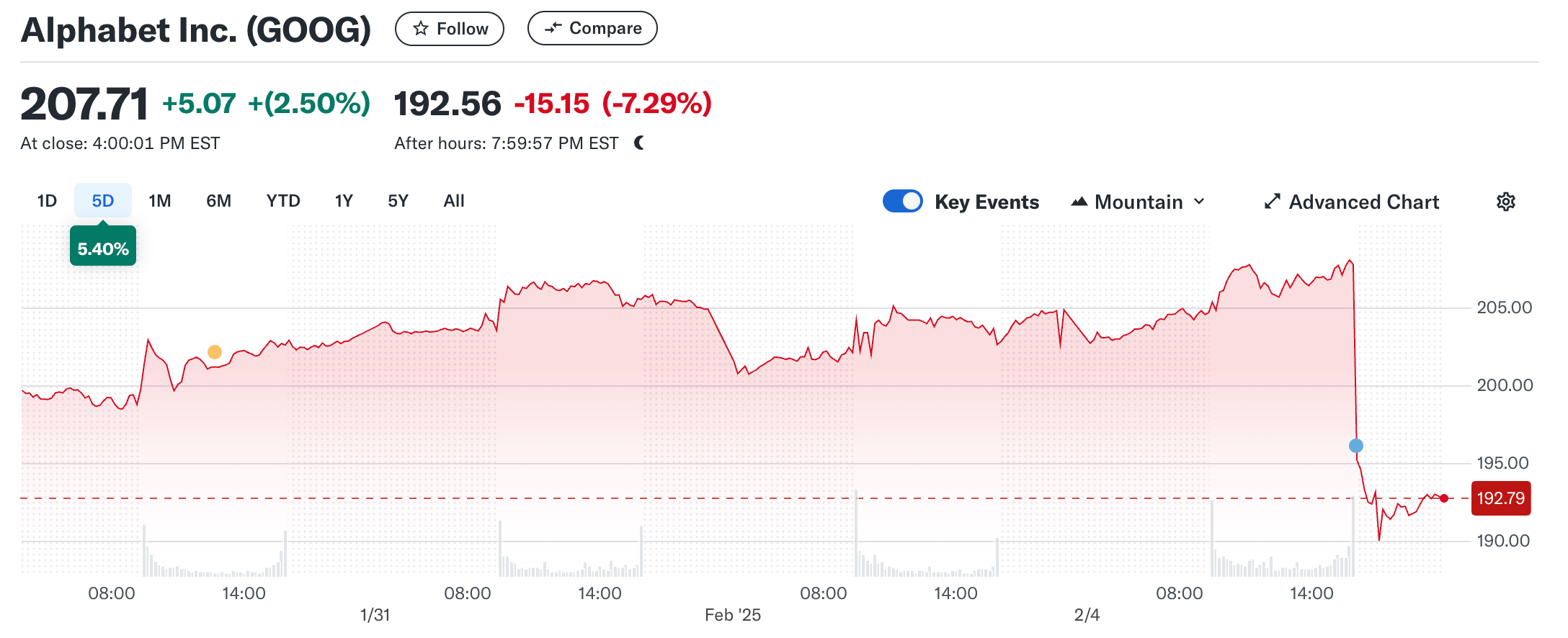Pichai emphasized that Google will make significant investments to drive AI development, with an estimated expenditure of $75 billion in 2025. He revealed this information in Alphabet’s Q4 2024 financial report. This figure represents a 43% increase compared to Google’s capital expenditures of $32.3 billion in 2023.
According to Pichai, this investment will accelerate AI innovation and further strengthen Google’s core business areas.
Capital expenditures—also known as “capex”—refer to funds used to acquire physical or fixed assets for long-term business operations.
While it remains unclear exactly how much of the $75 billion will be allocated to AI, a significant portion is expected to go toward expanding Google’s AI infrastructure. Other major tech firms are also ramping up their AI investments, including Meta, which has announced plans to spend $65 billion to expand its AI infrastructure.
In recent years, AI has become one of Google’s most important revenue streams. In the latest quarter, the company reported revenue of $96.5 billion, marking a 12% increase year over year.

Meanwhile, revenue from Google Cloud increased by 10%, reaching $12 billion in the same period. Google attributed this growth to the steady expansion of core Google Cloud Platform products, AI infrastructure, and generative AI solutions.
However, Alphabet’s total revenue fell short of analysts’ expectations, which had been projected at $96.7 billion, causing the company’s stock price to drop more than 7% in after-hours trading, according to Yahoo Finance.
During an investor call on February 4, Sundar Pichai downplayed concerns about new competitors, including DeepSeek, a China-based AI model that shook the market in late January.
Pichai assured investors that Google’s Gemini 2.0 Flash models are “some of the most efficient models out there,” even when compared to DeepSeek’s v3 and R1 versions.
Earlier, on January 27, DeepSeek rattled the U.S. market by announcing that it had developed an AI model capable of competing with American companies like OpenAI, but at a fraction of the cost.
The company claimed it had built its AI model on a budget of less than $6 million, using less advanced hardware from semiconductor manufacturer Nvidia.






